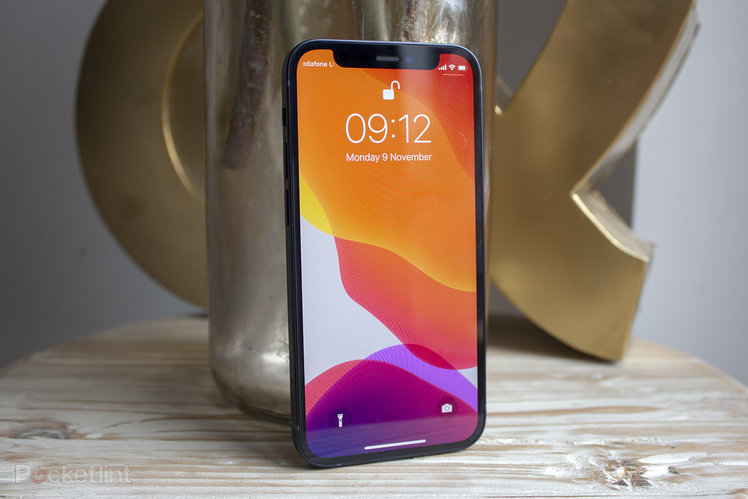
The iPhone 12 series comes in four models: the iPhone 12, the 12 Pro, the Pro Max, and this, the iPhone 12 mini. With all models making a nostalgic return to the iPhone 4’s squarer design and all offering a similar hardware loadout, the physical size is one of the main differentiating factors between the four variants.
The iPhone 12 mini is the smallest and the first compact Apple device to feature an all-screen front (unlike the also small iPhone SE). With most smartphones having gone down the “bigger is better” route for a long time now, is it time to do a U-turn?
It might be mini by name, but the iPhone 12 mini is mighty by nature. It’s the device that will make you appreciate the little things in life.
Design
- Finishes: Black, White, Blue, Green, (Product)Red
- Dimensions: 131.5 x 64.2 x 7.4mm / Weight: 135g
- IP68 water- and dust-resistant
The Apple iPhone 12 mini has an identical design to the larger iPhone 12 – just in a smaller and more compact format. It’s cute – very cute in fact – and exceptionally light too, making it a genuine delight to use day-to-day, especially one-handed. We didn’t realise how much we missed a smaller device until now.
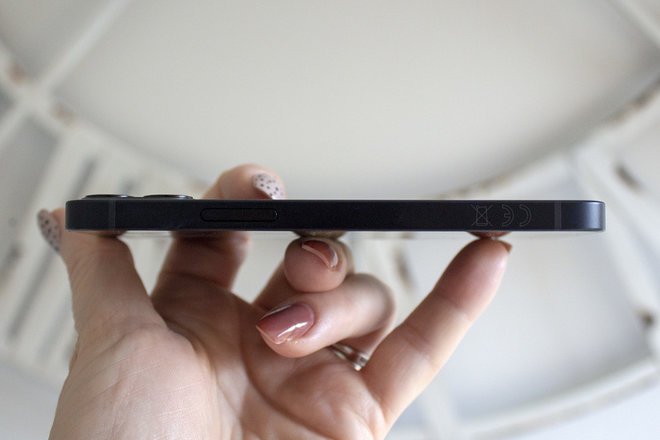
The flat edges of the aluminium frame offer a refreshing change to the rounded edges we have seen from Apple since the iPhone 6 and they are more comfortable and secure in the hand too. They say fashion always comes back around, and in the iPhone 12 mini’s case, it’s the iPhone 5’s design that’s making a comeback – but with some great changes and far more exciting colour options.
Like the larger iPhone 12, the iPhone 12 mini has a glass back that sits flush with the frame (as does the front) and absolutely loves a fingerprint smudge, like most phones do these days. There’s a dual rear camera in the top left corner – again like the iPhone 12 and 2019’s iPhone 11 – and those prominent lenses sit within a square camera housing that has a matte finish compared to the glossy finish of the rest of the rear.
Beneath the glossy surface – and invisible to the eye – are the MagSafe magnets. These are present on all the iPhone 12 models, and there are some great accessories that make use of them. We’ve tried out the Leather Wallet and MagSafe charger, both of which reassuringly snap securely onto the back of the iPhone 12 mini. You have to pull the charger off so it’s a different experience to simply lifting your device off a Qi wireless charging mats or dock, but we like it.
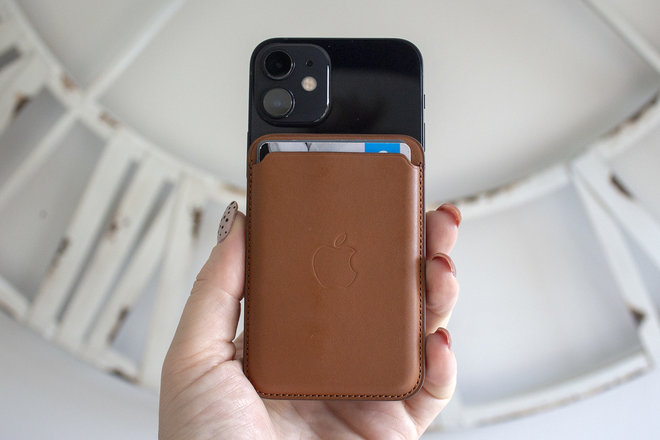
The 12 mini’s front is all display and this is where its lovely compact design really comes into its own – and why you’ll fall in love with it. The large notch at the top that incorporates Face ID is more obvious on the 12 mini compared to the iPhone 12 because of its size, but place the 12 mini next to the iPhone SE (2020) or an older model like the iPhone 7 and it will instantly win you over.
Display
- 5.4-inch, Super Retina XDR, 1200nits, 60Hz
- 2340 x 1080 pixel resolution (476ppi)
- HDR, True Tone, Haptic Touch
Despite the Apple iPhone 12 mini being smaller in footprint than the likes of the iPhone SE (2020) and iPhone 7 and 8, it offers a larger display – and that’s the real beauty of this device. You don’t have to sacrifice display real-estate for a phone that fits (easily) into your pocket.
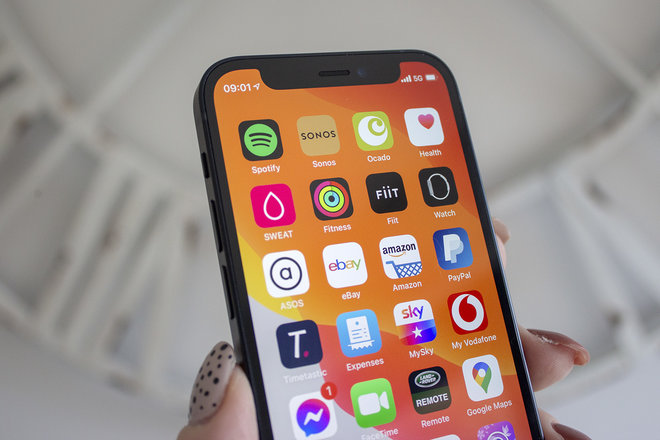
Apple’s Touch ID devices have a 4.7-inch screen, while the iPhone 12 mini’s display is 5.4-inches, giving you extra within a smaller device. It really works.
Don’t get us wrong. In the world of smartphones, a big screen on a compact body is by no means revolutionary. There are plenty of compact devices with all-display fronts out there. But for Apple fans who haven’t parted with their iPhone 7 or 8 yet because the previous Face ID models have been too big to consider, the iPhone 12 mini is perfect.
It’s not just about size though. The iPhone 12 mini has a Super Retina XDR display – or in more traditional display language, an OLED panel with HDR support – and it’s stunning. Though Apple’s LCD panels have been impressive in the past – the iPhone 11 has a great display – OLED displays traditionally have more punch and colour vibrancy – as the likes of Samsung has shown for years – and the iPhone 12 mini is no exception.
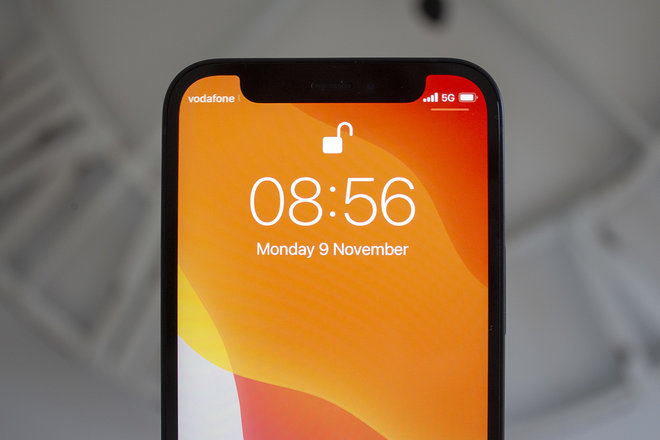
It’s a great display, despite not offering some of the latest features found on rival devices, such as 90Hz or 120Hz refresh rates, or Quad HD+ and 4K resolutions. Though you do get HDR support, True Tone technology, and Haptic Touch, the last of which is useful if you train yourself to use it. It’s also protected by something Apple calls Ceramic Shield – said to be tougher than smartphone glass.
Overall, everything looks great on the iPhone 12 mini’s screen – especially photos. Viewing angles are good, detail is lovely and crisp, colours really pop, and there is more than ample brightness – even when the winter sun is at its brightest.
Camera performance
- Main: 12-megapixel sensor, f/1.6 aperture
- Ultra-Wide (120-degree): 12MP, f/2.4
- Front: 12MP TrueDepth, f/2.2
The dual camera on the rear of the iPhone 12 mini is the same as what you’ll find on the iPhone 12, comprised of a 12-megapixel wide-angle lens and a 12-megapixel ultra-wide lens.
It’s the same two wide and ultra-wide lenses you’ll find on the iPhone 12 Pro, but the iPhone 12 Pro adds a third telephoto zoom lens, allowing for 2x optical zoom, rather than just the 5x digital zoom on the iPhone 12 mini.
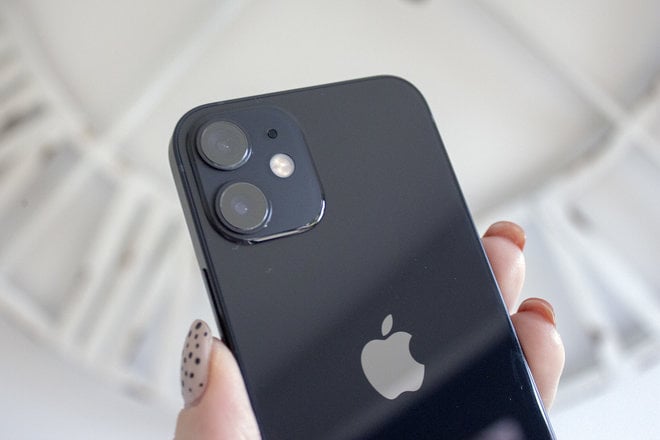
Overall, the iPhone 12 mini delivers really great results from its dual camera, even if we do miss the optical zoom.
While many rivals like Samsung and OnePlus offer more lenses on their flagships – some with double that of the iPhone 12 mini – it’s worth noting that more doesn’t always mean better. Sometimes keeping things simple can be just as effective. The Google Pixel 5 and Pixel 4a 5G are other good examples of this, both offering great camera results from two lenses.
One of the best attributes the iPhone has offered for a long time is its processing abilities – which have only gotten better over time – allowing users to just point and shoot and still get decent results. You don’t have to be a professional photographer to get a lovely photo of your kids, friends, pets, or a pretty landscape, and there’s a lot to be said for that.
In good conditions, the iPhone 12 takes some amazing photos with great detail, contrast and lovely colours that are true to life. There’s a Lens Correction feature that kicks in when using the ultra-wide lens, to give a more natural result with less edge blur. It’s great for making photos look less fish-eye in their nature.
The iPhone 12 mini performs well in low-light conditions as well, with Night Mode automatically kicking in when necessary, allowing you to take some decent shots without the flash having to be on – as long as you keep still, as there’s not the optical image stabilisation here that you can find in the iPhone 12 Pro Max and other competitors.
There’s also Night Mode on the TrueDepth front camera too, as well as Deep Fusion, so taking selfies at night and in low-light conditions is far more natural than they are with the flash. In good conditions you can get some great shots from the front camera too.
Portrait mode sees improvements too. Edges are now more distinguished in good lighting conditions, while blurring is more refined than when the mode first arrived. Portrait shots aren’t completely perfect in every instance if you look closely, especially in low-light conditions where the edges become a little more questionable, and hair strands still get lost in the background most of the time, but significant improvements are present.
The iPhone 12 mini also offer 10-bit HDR Dolby Vision video recording up to 30fps from the front and rear cameras. This happens automatically and it’s also possible to edit encoded Dolby Vision videos, meaning you can capture, watch, edit and share from the device itself.
Hardware and specs
- A14 Bionic processor, Neural Engine
- 64GB/128GB/256GB storage
- 5G connectivity
The Apple iPhone 12 mini runs on the A14 Bionic chip and next-generation Neural Engine, which is the same as all the iPhone 12 models. For those into the geekier side of the specs, the chip is built on a 5nm process technology and it’s made up of two performance cores and four custom efficiency cores that all work together. The Neural Engine, meanwhile, is made up of 16 cores.
What do all those numbers actually mean in reality though? Well, basically, a very smooth and fluid experience whatever you’re doing – whether that’s gaming, watching a movie, taking photos, or managing your WhatsApp chats. We didn’t experience any lag, with the 12 mini switching seamlessly between day-to-day tasks, whilst also managing gaming and more heavy duty tasks effortlessly.
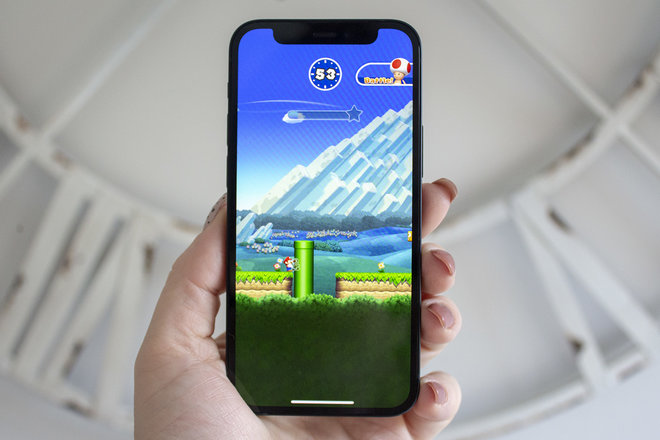
It’s a mini powerhouse. Apple has done with the 12 mini what Sony Mobile did several years ago when it offered Compact models of its flagship devices with the same hardware but in a smaller format. You don’t compromise on performance just because you’ve picked a smaller model here.
All the iPhone 12 models, including the iPhone 12 mini, are 5G-enabled too. It’s a slightly different approach to some other manufacturers who offer 4G and 5G models of the same device, but it’s not a bad approach – it means you’re future-proofed even of 5G doesn’t interest you now (or if you don’t live in or around a 5G area at present).
Apple also has something called Smart Data mode that automatically switches to LTE when you don’t need 5G speeds in order to save battery life. We’ve watched our iPhone 12 mini review unit do this throughout the day at home when we have Wi-Fi turned off. It’s clever.
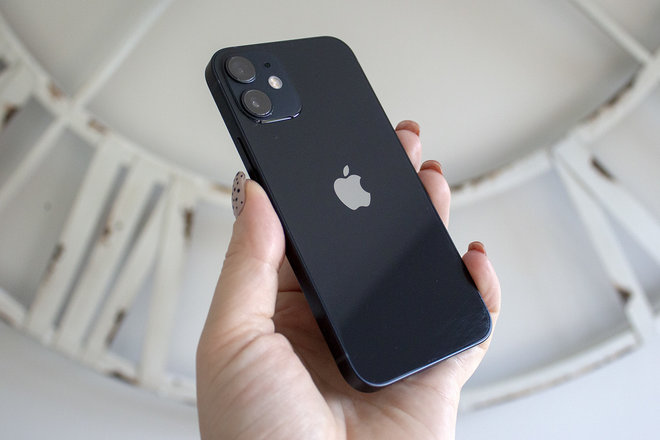
We would have 4G until we opened up Netflix for example, then our 12 mini would immediately change to 5G as soon as the app launched. You can turn the Smart Data mode feature off so you have 5G all the time, but we aren’t sure why you would want to – especially if it saves battery life. Which is one area where the iPhone 12 mini isn’t that amazing.
Battery performance
- Up to 15 hours video playback, 10 hours streamed
- 20W fast-charging (50 percent in 30 mins)
- MagSafe wireless charging up to 15W
- Qi wireless charging up to 7.5W
The Apple iPhone 12 mini doesn’t have the best battery life on the block. Typically small phones do well on battery life – smaller screens to power being one of the main reasons – but in this case, it’s an area where the iPhone 12 mini could improve.
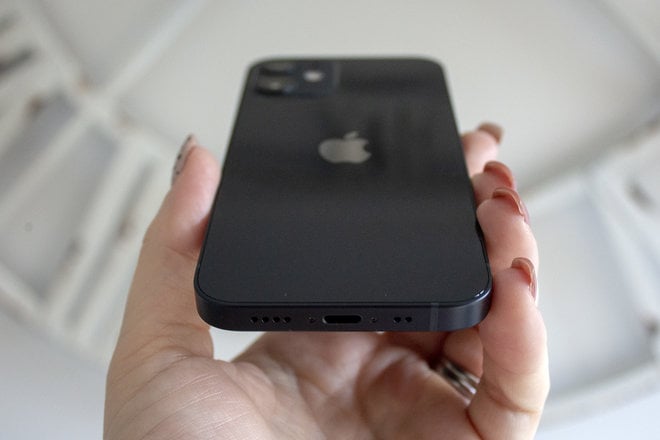
Naturally, of course, it depends on what you use your device for. Taking a lot of pictures, shooting and editing Dolby Vision HDR video, watching movies, playing a lot of games – all of these will take their toll on the iPhone 12 mini’s battery and you will probably just about make it to bedtime if you do any of these a lot throughout the day.
General tasks, such as replying to emails and messages, taking phone calls and taking the occasional photo, however, are all things the iPhone 12 mini can handle without a problem. However, while you may not need to charge it that night, you won’t get through much of the next day before it requires a top-up.
It’s worth noting here, that like the other iPhone 12 models, the iPhone 12 mini only comes with a Lightning-to-USB cable in the box. There is no wall plug in the box and there are no headphones either. The MagSafe charger we mentioned earlier in this review is sold separately – allowing 15W wireless charging – and the iPhone 12 mini is compatible with any Qi wireless charger too.
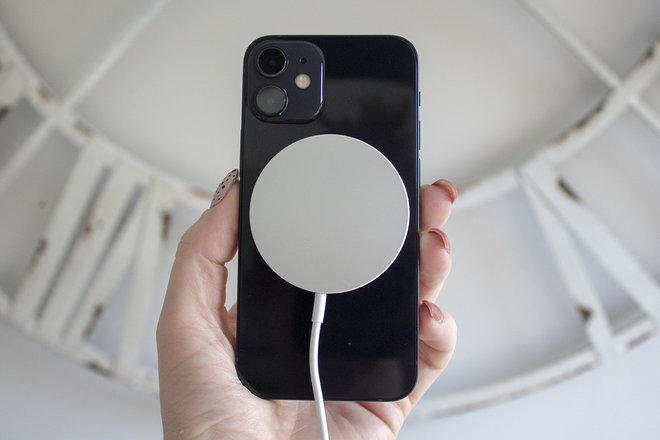
It also has fast-charging on board – with a 20W adapter (yes, sold separately) – offering up to 50 per cent charge in 30 minutes. This isn’t as fast as some rivals, with manufacturers like OnePlus offering 65W charging on its OnePlus 8T, for example, but it will give you enough juice to see you through the day without having to wait too long.
Software
- iOS 14
The Apple iPhone 12 mini runs on iOS 14, like the rest of the iPhone 12 range, and with this software comes a number of features, from widgets on the home screen and App Clips, to Messages and Maps improvements.
Of course, the software is available on all iPhones from the iPhone 6S and later so most features aren’t exclusive to the iPhone 12 series. There are a few that are, such as Night Mode on the front camera, but the overall software experience will be identical to any other iPhone.
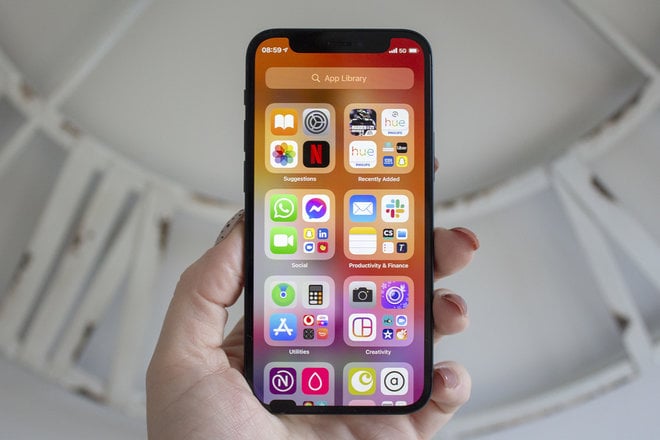
That makes it familiar for those upgrading (but with the beauty of the bigger display if upgrading from Touch ID models), and relatively simple – although a more closed system – for those moving from Android.
You can read more about iOS 14 and all its features in our separate feature.
